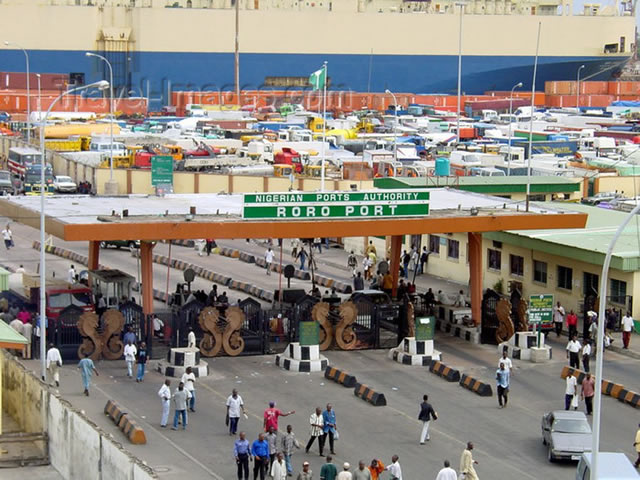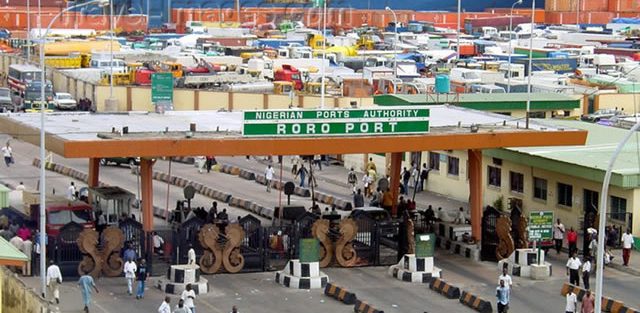
The United States government has faulted Nigeria for the continued delay in approving import permits for American agricultural products, describing the situation as a longstanding trade barrier that has hindered access to the Nigerian market.
In its latest 2025 National Trade Estimate Report on Foreign Trade Barriers, the Office of the United States Trade Representative said that despite repeated efforts to secure market access, Nigeria had not acted on several pending requests concerning food and agricultural imports from the US.
However, the Nigeria Customs Service countered the claims by the United States government that the NCS still operates a largely manual system, describing the assertion as “unfair” and “misinformed.”
The US National Trade Estimate Report on Foreign Trade Barriers stated, “Since 2019, the United States has sought to negotiate import permits for the export of several categories of US food and agricultural products. Nigeria has been slow to approve these requests.”
The USTR noted that Nigeria’s weak capacity to review certificates, inspect goods, and conduct testing had contributed to long clearance delays, forcing many traders to rely on informal channels.
It also criticised Nigeria’s lack of consistency in applying sanitary and phytosanitary rules, saying this had created confusion among exporters.
“Nigeria is not consistent in the implementation of technical regulations and sanitary and phytosanitary measures, which can create confusion and undermine compliance,” it said.
The US government also took issue with Nigeria’s complex and restrictive import regime. It noted that while the country’s average Most-Favoured Nation applied tariff rate stood at 12 per cent in 2023, agricultural products attracted 15.9 per cent, and non-agricultural goods 11.4 per cent.
The report added that Nigeria imposes several supplementary charges that significantly raise the effective rate paid by importers.
“Nigeria maintains a combined duty plus other associated import fees of 50 per cent or more on 79 tariff lines. These include 17 tariff lines on which the combined duty plus other associated import fees reach or surpass the 70 per cent limit set by ECOWAS,” the report said.
It also criticised Nigeria’s continued import bans on 25 product categories, including poultry, beef, spaghetti, fruit juice in retail packs, used vehicles over 12 years old, soaps, and certain alcohols, describing them as barriers to trade.
“The Nigeria Customs Service continues to ban the import of 25 different product categories,” it added.
The report pointed to systemic problems in Nigeria’s customs administration, including corruption, manual processes, and inconsistent interpretation of trade rules.
“Importers report inconsistent application of customs regulations; lengthy clearance procedures, often due to outdated manual processing systems; and corruption,” the USTR stated.
It noted that although the Federal Government approved a $3.1bn customs modernisation project in 2020 to automate processes, the project had suffered delays and was now the subject of legal disputes.
On public procurement, the USTR said US companies face difficulties accessing government contracts due to a lack of transparency and contract payment issues.
It added that agencies often failed to comply with procurement guidelines, despite the requirement for a “Certificate of ‘No Objection’ to Contract Award” from the Bureau of Public Procurement.
“Nigerian Government agencies do not always follow procurement guidelines,” the report said. “Foreign government-subsidized financing arrangements appear in some cases to be a crucial factor in the award of government procurements.”
While acknowledging the passage of the Copyright Act, 2022, and other intellectual property reforms, the report said enforcement remained poor.
“Counterfeit goods, including pharmaceuticals, automotive parts, and other consumer goods, remain widely available in Nigeria and often threaten the health and safety of consumers,” it stated.
The USTR also raised concerns over digital trade restrictions, noting that the National Information Technology Development Agency Guidelines require all data concerning Nigerian citizens to be stored within the country.
It said these localisation rules, though not rigorously enforced, created uncertainty for businesses.
It noted that the Finance Acts of 2020 and 2021 introduced new taxes on digital services provided by foreign companies to Nigerian consumers.
“US companies have expressed concerns about the impact of the tax,” the report said.
It further criticised restrictions in Nigeria’s reinsurance and advertising sectors, including prohibitions on foreign participation in oil and gas risk reinsurance, and mandatory advertising registration with the Advertising Regulatory Council of Nigeria.





